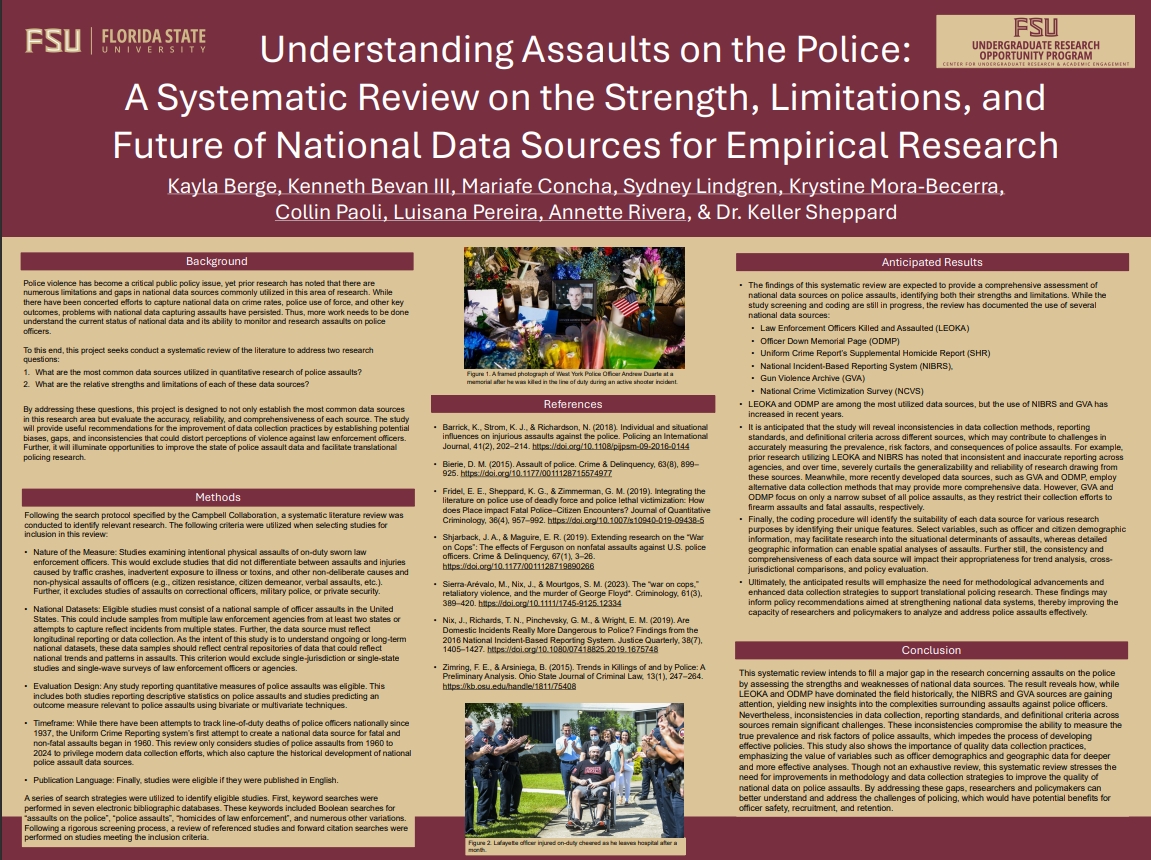Research Symposium
25th annual Undergraduate Research Symposium, April 1, 2025
Luisana Pereira Baez Poster Session 3: 1:45 pm - 2:45 pm / Poster #163

BIO
I am Luisana Pereira Baez, and I am currently studying International Affairs and Political Science. I am interested in working in diplomacy or policy analysis after pursuing a law degree. My research focuses on a data-driven approach to policy creation. I am passionate about the policy creation process and plan to pursue further research during my undergraduate career that will inform this process.
Understanding Assaults on the Police: A Systematic Review on the Strength, Limitations, and Future of National Data Sources for Empirical Research
Authors: Luisana Pereira Baez, Dr. Kellar SheppardStudent Major: International Affairs and Political Science
Mentor: Dr. Kellar Sheppard
Mentor's Department: Criminology and Criminal Justice Mentor's College: College of Criminology and Criminal Justice Co-Presenters: Mariafe Concha
Abstract
Police violence has become a critical public policy issue, yet prior research has noted that there are numerous limitations and gaps in national data sources commonly utilized in this area of research. While there have been concerted efforts to capture national data on crime rates, police use of force, and other key outcomes, problems with national data capturing assaults have persisted. Thus, more work needs to be done understand the current status of national data and its ability to monitor and research assaults on police officers. To this end, this project seeks conduct a systematic review of the literature to address two research questions: What are the most common data sources utilized in quantitative research of police assaults and what are the relative strengths and limitations of each of these data sources? By addressing these questions, this project is designed to not only establish the most common data sources in this research area but evaluate the accuracy, reliability, and comprehensiveness of each source. The study will provide useful recommendations for the improvement of data collection practices by establishing potential biases, gaps, and inconsistencies that could distort perceptions of violence against law enforcement officers. Further, it will illuminate opportunities to improve the state of police assault data and facilitate translational policing research.
Keywords: Assault on Police, Police Use of Force, National Databases


